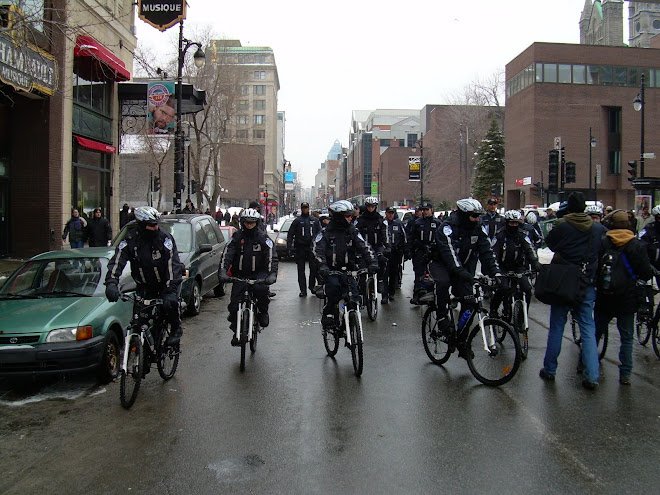The problem (fairly self-evident, I think) posed by the title of this post derives from my reading of Geert Lovink's Zero Comments: blogging and critical internet culture (2008). I think that is further complicated by blogs with an explicit intention to inform from a particular political perspective, as in the case of blogging (and more general amarchist/radical left coverage and discussion) relating to the Greek riots and occupations, and the ongoing situation in Greece. And it plays into the relation between mainstream media and independent sourcing or amplification that the past two posts imply - in that it makes manifest the question of whether we are amplifying aspects of our own perspectives or identities (reinforcing our already-assimilated views and feelings about the world, twisting the myriad informational inputs in our lives in our own way, building selves out of the exercise) or building aspects of our perspectives into collective identifications through the productive work of presenting information (along with our own comments, contributing to dialogue and the formation of groups which we value for various reasons)...or, however abstractly, contributing (selflessly?) to some sort of Habermasian or liberal-idealist 'public sphere' (in which the best negotiations of our individual and group allegiances could positively generate a mutually acceptable synthesis).
The line of questioning strikes me as marking a particularly tricky axis-point for anarchist political thought. What is on going on here? What are we doing? Politics? What politics? And it's one that hits up some of the big polemics of the last (published-western-theoretical 'anarchist') fifteen years (think of Murray Bookchin wailing on 'lifestyle anarchism,' or of his more vitriolic critics).
Taking up Lovink directly (in response to a self-posited nihilism/anti-nihilism problem in blog-culture):
"How many of the postings, we can ask with [Cornel] West, are Socratic questioning? [...] How to overcome meaninglessness without falling back into centralized meaning structures [...]?" (30)
First of all, I'm not convinced that this is necessarily the problem at all for anarchist/radical-leftists who diagnose the more obvious excesses and injustices of capitalism and state-centrism, 'domination' and 'oppression' in its more manifest and material/coercive forms. But I think many people (non-anarchist) see these manifestations clear as day & fail to draw the same conclusions for action. People (many, at least) get it. Many people don't see everyday injustice as quite so thought-provoking or imperative as others. Thus, I think, this is a question with profoundly 'anarchist' insinuations (despite Lovink's later, seemingly dismissive juxtaposition of "the nightmares of twentieth century Marxism or the anti-power model of Western anarchists (198)." How do we do social criticism with a hammer and come out with something worth having on the other side? How do we contest the meanings that have been sculpted into legitimating features of the everyday order of things at the same time that we fight the cynicism that sees them as transparent lies?
I think that Lovink's charactrization of (Western) anarchism there is troubling for a number of reasons (I'll elucidate, I promise), and I will also hop right on the path I've set for myself in terms of the (blogged, linked, discussed, debated) context of the Greek riots, etc. - but that will have to wait 'til next time (soon, soon). Next up: ethics, as I see them in the context of such a project, then some substantive (but always already theoretical) musings on the subject at hand.
Subscribe to:
Post Comments (Atom)


No comments:
Post a Comment